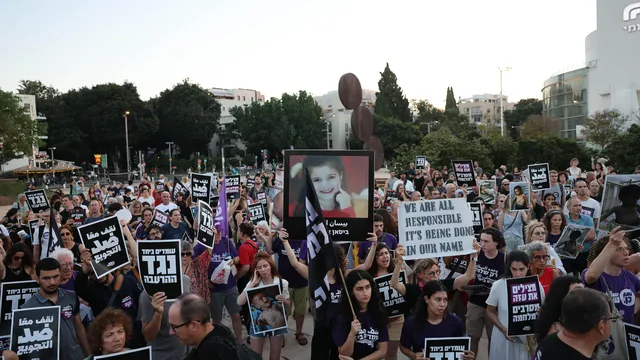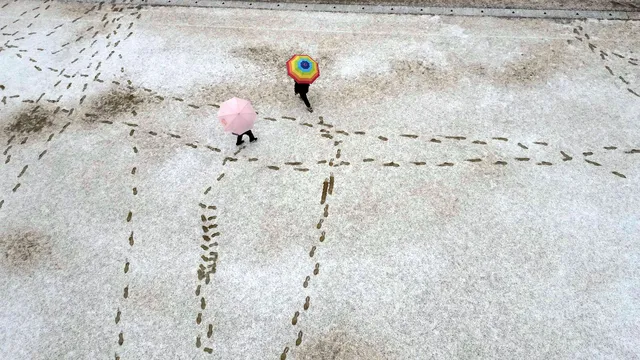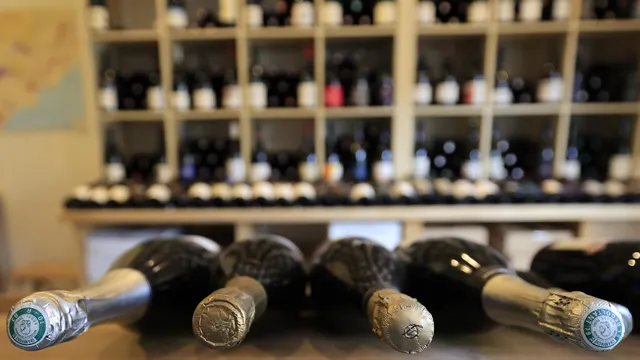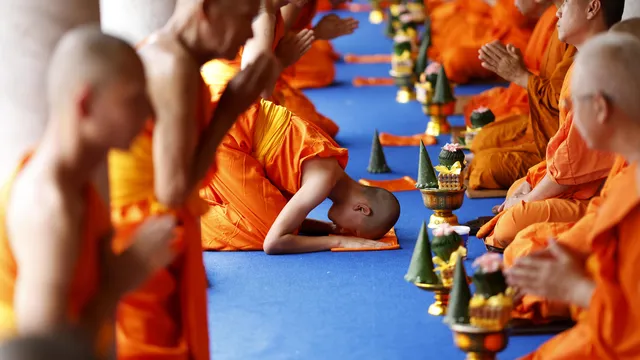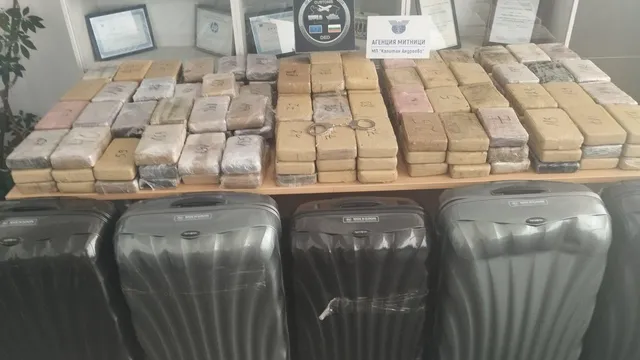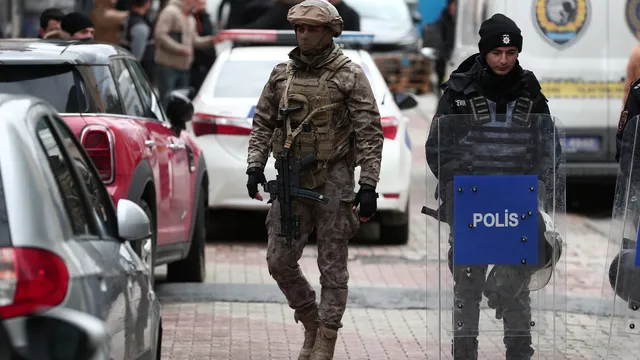"You can't win a war at the expense of children's lives," a young woman chanted through a megaphone in central Tel Aviv last night.
The crowd around her—hundreds of Israelis carrying sacks of flour and life-size images of starving children from Gaza—repeated the words with force.
The march, organized by the Jewish-Arab movement Standing Together, was intended to oppose Israel's role in the starvation and devastation in Gaza.
It took place after alarming reports that, according to the UN, over 1,000 Palestinians had been killed while trying to obtain food since the end of May.
At least 100 Palestinians, including 80 children, have died of malnutrition in the Gaza Strip, the Palestinian Ministry of Health said on July 22.
Alon-Lee Green, co-director of Standing Together, expressed disbelief that such a protest was necessary.
"We cannot believe that we have to march against the starvation of children and innocent people," he said.
"People already understand that this is killing for the sake of killing, starvation for the sake of starvation. What we are doing in Gaza is destruction as a policy," he said, quoted by Haaretz.
The protest began in Habima Square, a cultural and symbolic center in Tel Aviv.
Protesters held pictures of children such as five-year-old Osama al-Rakab, a boy from Gaza with cystic fibrosis who died of starvation after losing access to medicine and food.
Others held sacks of flour to symbolize the shortages that have left more than two million people in Gaza in what humanitarian organizations describe as "the worst humanitarian crisis."
One of the protesters, Gadir Hani, said she felt compelled to speak out despite mourning the losses of October 7, including her friend, peace activist Vivian Silver, who was killed in the Hamas attacks.
"Jews who survived the horrors of the Holocaust must stand up and oppose the horrors happening in Gaza," she said.
"I come with the message that humanity comes first," Hani added.
The protest marched through Tel Aviv, gathering both supporters and hostile people.
Some passersby joined in, others watched or expressed discomfort.
An Israeli-American protester named Carmel pointed to the reactions as evidence of widespread ignorance.
"I was shocked at how many people don't know what's really going on," she said.
Before the march, Rula Daoud, another co-director of Standing Together, addressed the crowd:
"It's not normal for people to have to fight and die to find a bag of flour. It's not normal for mothers to send their sons to Gaza with weapons to kill and be killed as soon as they turn 18. We can't continue to act as if nothing is happening."
Green added:
"As Israelis, when we are told that this is for our safety, how are we supposed to feel? When we are told that this will bring the hostages back very soon—but they have been saying this for two years—how are we supposed to feel? When they tell us we have no choice but to send our children to commit these war crimes, these crimes against humanity, how are we supposed to feel?"
"All I know is that we have no choice but to resist, to intensify our struggle against this, to show this reality to everyone in Israel," he continued.
"This includes refusing to serve in the military in Gaza. Every soldier who enters Gaza, regardless of their role, is complicit in war crimes."
Alon-Lee Green encouraged Israelis to protest, discuss the suffering of Gaza's residents, and make demands of their elected representatives.
Israel's siege of Gaza intensified in early March after ceasefire talks collapsed.
Aid was blocked for weeks before being partially restored at the end of May.
But it was too little, too late: food supplies had run out and market prices in Gaza had skyrocketed.
According to journalists and civil defense officials in Gaza, Israeli forces have repeatedly fired on people seeking help.
Journalists on the ground are among the victims of this collapse. AFP reporters in Gaza described their physical condition—many are working in a state of exhaustion, hunger, and without medical treatment.
Photographer Eyad Baba, who was displaced and is living in a tent, said:
"The pain of hunger is stronger than the fear of bombing."
Journalist Ahlam Afana reported that flour costs $30–45 per kilogram, and basic fruits and vegetables are unavailable.
"I don't even remember what they taste like," she said.
As the procession wound its way through the streets toward the Cinematheque in Tel Aviv, demonstrators chanted:
"Starving children are a war crime!"
"There is no excuse for starving children!"
"Stop the bombing!"
Some residents watched silently from their balconies; an elderly woman banged pot lids to the beat of protest drums.
Not everyone agreed with the protest—one man shouted through a megaphone in support of the war, accusing the demonstrators of ignoring the fate of Israeli hostages.
But his message was ultimately drowned out by chants of "Every child is a civilian."
When the rally ended, the protesters began to sing. One of them grabbed a megaphone and began singing "Ose Shalom," the Jewish prayer for peace. Others joined in, adding their own verses:
"Make peace for us... for Israel... for Gaza... for the whole Middle East." | BGNES

 Breaking news
Breaking news
 Europe
Europe
 Bulgaria
Bulgaria
